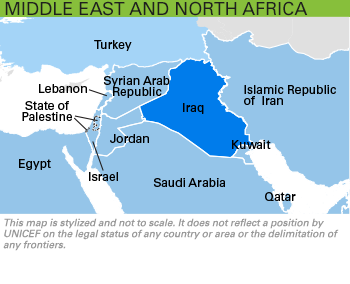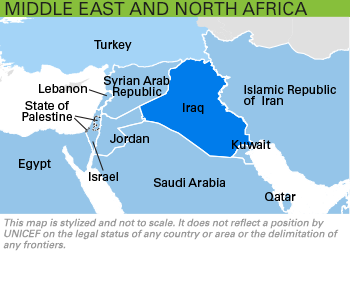AICS and UNOPS Partner to Rehabilitate the Basic Services for Returnees in Sinjar, Iraq
The Italian Cooperation and UNOPS launched a new project to support the Government of Iraq in rehabilitating basic services to returnees in Sinjar.
The project will support the Government of Iraq in rehabilitating the basic water services for returnees in Sinjar district in Iraq, through a partnership with the Government of Italy.
The project will contribute to achieving the Humanitarian Response Plan (HRP) for Iraq: Post-conflict transition towards durable solutions by supporting access to basic services to increase the resilience of returnees in target locations.
Since 2018, the Italian Agency for Development Cooperation (AICS) office in Amman has also been responsible for implementing international cooperation initiatives in Iraq. “Our support has focused on the Kurdish Region of Iraq (KRI) and neighbouring areas such as the Ninewa plains, which experienced high rates of return after the massive displacement of the resident population,” said the Head of AICS Amman office Mr. Michele Morana.
“This project comes in line with the Italian Cooperation’s aid priorities targeting the health and protection sectors in the Country, as it addresses immediate recovery and aims to improve accessibility, inclusiveness and quality of basic services for minorities and local communities”.
“The Government of Italy fully supports the urgent need to rebuild Sinjar, through the restoration of basic services as key to incentivizing the return of still displaced people. Every effort should also be taken to reintegrate returnees within their communities and provide them with tangible support to rebuild their lives” said the Ambassador of Italy to Iraq Bruno Antonio Pasquino.
“Thanks to the support from the Italian Cooperation, UNOPS is able to lend a hand to the people returning to Sinjar District in Iraq. Access to water supplies is one of the many challenges faced by returnees and their families. The rehabilitation of basic services in the district will contribute to improving Sinjar water infrastructure and eventually improving people’s lives.” said Mr. Muhammad Usman Akram, the Director of UNOPS Operational Hub in Amman.
Through this project, the targeted populations will benefit from improved and rehabilitated basic water facilities. UNOPS will focus on the improvement of water services in Sinjar district. The main focus would be to rehabilitate damaged water facilities, such as potable and/or storm water pumps, generators, parts of water treatment units.
The intervention will also include innovative technologies, such as renewable and hybrid systems, where applicable, in target locations. It is envisaged that this project will support the Government in its efforts towards the realization of Agenda 2030 and more specifically contribute to the Sustainable Development Goals (SDG); specifically, SDG 3: Good Health and Well-being and SDG 6: Clean Water and Sanitation.
Sinjar is one of the four districts in Ninewa that presents a higher severity of needs, whereby the well-being, living standards, and ultimately resilience and recovery capacity of the local communities, as well as their social cohesion and safety, are all severely impacted as a result of unmet needs.
(Source: UN)
The post Italy, UNOPS to provide Services for Returnees in Sinjar first appeared on Iraq Business News.



